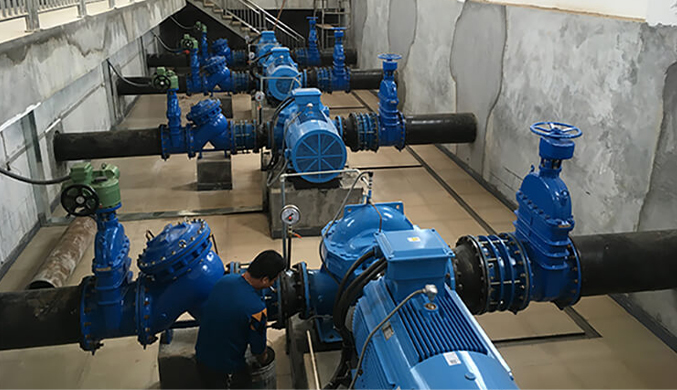Swedish
- Afrikaans
- Albanian
- Amharic
- Arabic
- Armenian
- Azerbaijani
- Basque
- Belarusian
- Bengali
- Bosnian
- Bulgarian
- Catalan
- Cebuano
- Corsican
- Croatian
- Czech
- Danish
- Dutch
- English
- Esperanto
- Estonian
- Finnish
- French
- Frisian
- Galician
- Georgian
- German
- Greek
- Gujarati
- Haitian Creole
- hausa
- hawaiian
- Hebrew
- Hindi
- Miao
- Hungarian
- Icelandic
- igbo
- Indonesian
- irish
- Italian
- Japanese
- Javanese
- Kannada
- kazakh
- Khmer
- Rwandese
- Korean
- Kurdish
- Kyrgyz
- Lao
- Latin
- Latvian
- Lithuanian
- Luxembourgish
- Macedonian
- Malgashi
- Malay
- Malayalam
- Maltese
- Maori
- Marathi
- Mongolian
- Myanmar
- Nepali
- Norwegian
- Norwegian
- Occitan
- Pashto
- Persian
- Polish
- Portuguese
- Punjabi
- Romanian
- Russian
- Samoan
- Scottish Gaelic
- Serbian
- Sesotho
- Shona
- Sindhi
- Sinhala
- Slovak
- Slovenian
- Somali
- Spanish
- Sundanese
- Swahili
- Swedish
- Tagalog
- Tajik
- Tamil
- Tatar
- Telugu
- Thai
- Turkish
- Turkmen
- Ukrainian
- Urdu
- Uighur
- Uzbek
- Vietnamese
- Welsh
- Bantu
- Yiddish
- Yoruba
- Zulu
Telephone: +86 13120555503
Email: frank@cypump.com
okt . 13, 2024 16:23 Back to list
septic sewage pumps
Understanding Septic Sewage Pumps Essential Components for Efficient Waste Management
Septic sewage pumps play a crucial role in the management of wastewater in residential and commercial properties that rely on septic systems. Unlike traditional sewer systems that transport waste to a centralized treatment facility, septic systems treat sewage on-site, allowing for sustainable waste management in areas where municipal sewer systems may not be available. Understanding the function, types, and maintenance of septic sewage pumps is essential for homeowners and property managers looking to ensure their waste management systems operate smoothly.
What Are Septic Sewage Pumps?
Septic sewage pumps are specialized pumps designed to move wastewater from the septic tank to the drain field or leach field, where the effluent can be naturally filtered by the soil. These pumps are typically submerged in the septic tank, and they automatically activate when the wastewater level reaches a certain point. Their primary function is to transport sewage and effluent efficiently, preventing overflow and ensuring that the septic system operates effectively.
Types of Septic Sewage Pumps
There are primarily two types of pumps used in septic systems effluent pumps and grinder pumps
.1. Effluent Pumps These pumps are used for moving wastewater that has already been treated to some degree. They are ideal for systems where the drain field is located at a higher elevation than the tank. Effluent pumps are typically less powerful and can handle solids up to a certain size, usually around ¾ inch.
2. Grinder Pumps In contrast, grinder pumps are designed to handle wastewater that contains larger solids. Equipped with a grinding mechanism, these pumps can process waste from toilets, sinks, and other plumbing fixtures. Grinder pumps are particularly useful in low-lying areas where sewage needs to be elevated to reach the main sewer line or drain field.
septic sewage pumps

Maintenance of Septic Sewage Pumps
Regular maintenance of septic sewage pumps is vital to ensuring their longevity and efficient operation. Homeowners should consider the following maintenance tips
- Regular Inspections Periodically check the pump and its components for any signs of wear and tear. This includes inspecting electrical connections, floats, and seals.
- Prevent Clogs Installing a filter or screen on the pump inlet can help prevent large solids from entering the system and causing clogs.
- Pump Cleaning Depending on usage and environmental conditions, it may be necessary to clean the pump annually to remove any buildup or debris.
- Professional Servicing Engaging a professional service for comprehensive pump inspection and maintenance can ensure any potential issues are addressed before they escalate.
Conclusion
Septic sewage pumps are integral to the efficient functioning of septic systems, ensuring that wastewater is properly treated and disposed of. By understanding the types of pumps available and committing to regular maintenance, property owners can avoid costly repairs and ensure their sewage systems remain in optimal condition. In an era where effective waste management is more critical than ever, septic sewage pumps represent a vital component of sustainable living practices necessary for both health and environmental reasons.
-
Heavy-Duty Mining Sludge Pumps - Wear-Resistant Slurry Handling
NewsAug.02,2025
-
Horizontal Split Case Pump with GPT-4 Turbo | High Efficiency
NewsAug.01,2025
-
ISG Series Pipeline Pump - Chi Yuan Pumps | High Efficiency, Durable Design
NewsAug.01,2025
-
Advanced Flue Gas Desulfurization Pump with GPT-4 Turbo | Durable & Efficient
NewsJul.31,2025
-
ISG Series Vertical Pipeline Pump - Chi Yuan Pumps | Advanced Hydraulic Design&Durable Construction
NewsJul.31,2025
-
ISG Series Vertical Pipeline Pump - Chi Yuan Pumps | Energy Efficient & Low Noise
NewsJul.31,2025










